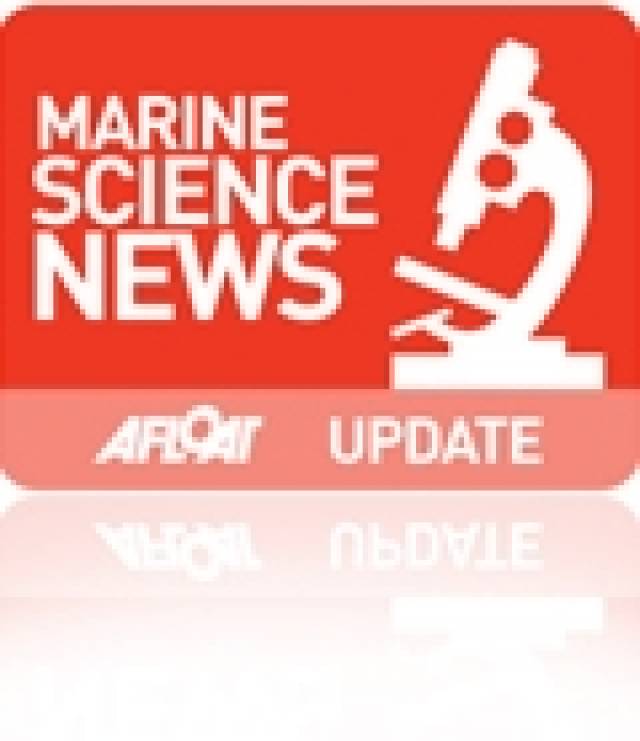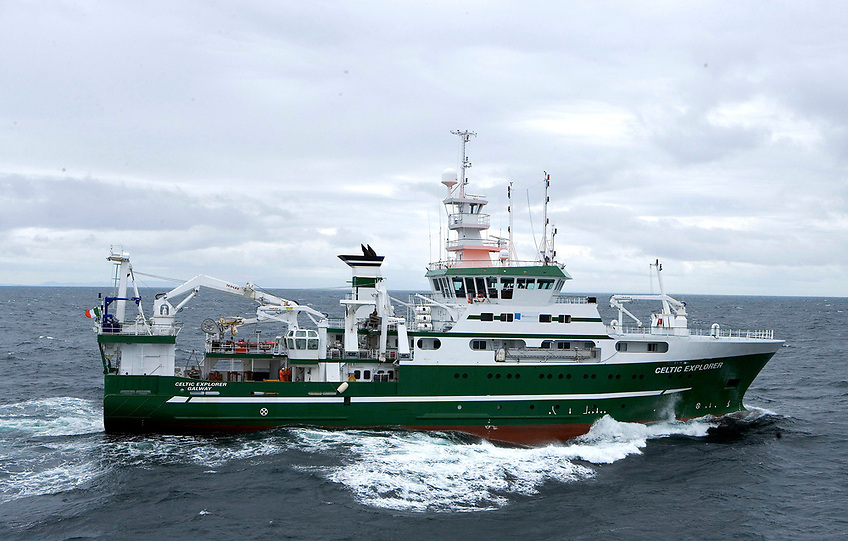In association with the Marine Institute and sponsored by Culture Ireland and Tourism Ireland, the Longest River event will take place at Eglise du Saint-Sacrement, in Brussels on April 29th (from 8-9pm) as part of the celebration of Ireland's Presidency of the Council of European Union.
The Longest River event is under the patronage of both Ms Maria Damanaki and Ms Máire Geoghegan-Quinn, Members of the European Commission.
Commissioner Damanaki commented, "Our Atlantic Ocean is the bridge between all Atlantic States. I am delighted to be associated with the Longest River as it demonstrates the importance of international collaborations on ocean research – as such research will be central to the success of the Action Plan for the implementation of the Maritime Strategy proposed by the European Commission in order to deliver smart, sustainable and inclusive growth in the Atlantic Ocean area".
As part of our EU Presidency role, Ireland is supporting Commissioner Ms Maria Damanaki in her initiative to complete an Action Plan for the Atlantic. This Action Plan will focus on supporting exciting opportunities in a range of areas including the Marine ICT sector, ocean energy generation, marine and coastal tourism, marine biotechnology, as well as developing the seafood and aquaculture industry
Commissioner Máire Geoghegan-Quinn attended the inaugural performance of The Longest River during the ESOF2012 events in Dublin last July and commented, "I felt it was an excellent and moving example of how to communicate about big societal issues, such as climate change. The event showed how research and knowledge creation about our oceans is central to dealing with issues, given the key role they play in the life support system of this planet".
The Longest River performance will include Galway-based choir Cois Cladaigh directed by Dr Brendan O'Connor. The choir specialises in contemporary choral music from Ireland, Scandinavia, Eastern Europe and North America and also European music from the late 15th and early 16th centuries. Dublin native Eugene Lambe will perform on the uilleann pipe. Kathleen Loughnane, harpist and co-founder of the group Dordán will perform a mix of Irish and Baroque music. Deirbhile Ní Bhrolcháin will provide an innovative repertoire of traditional Irish sean-nós singing.
The science of our oceans and deep seas that support our life on earth will be presented by Professor John Delaney of the University of Washington. A unique fusion of poetry, photography and rarely filmed marine environments will reveal the importance the ocean and its impact on our daily lives.
The poem called Little Gidding by T.S Eliot expresses the perpetual deep ocean being the source of the Longest River – this being the last of earth yet to be discovered. "The idea of the ocean and its correlation of how we live on land highlights our maritime history. With the significant development in marine technology and marine sciences, the wealth of information and data collected will now enable us to understand and discover the oceans in a way that has never been done before," Professor Delaney explained.
The capabilities of marine scientists today will influence next generation exploration under the sea and also help develop strategies in exploring beyond our planet. At the leading edge of ocean and earth science research and education, Professor Delaney is developing an ocean observatory platform using remote sensor robotics over a sector of the Juan de Fuca tectonic plate and oceans with US NSF funding.
"A real-time natural laboratory under the sea which is internationally accessible and interactive, will provide scientists the tools to observe, forecast and predict short and long term oceanic activity, threats and opportunities," Delaney further said.
Multidisciplinary research and international cooperation is essential in achieving healthy marine ecosystems – which is a key goal of the Irish Government's Integrated Marine Plan for Ireland - Harnessing Our Ocean Wealth. With an aim to double Ireland's marine sectors contribution to GDP by 2020, having a better understanding of the oceans is key to generating social, cultural and economic benefits. "Communicating how research and innovation deliver societal benefits is important to the mission of the Marine Institute," according to Dr. Peter Heffernan, CEO of the Marine Institute.
Video footage of the hydrothermal vents discovered by an Irish led expedition on the RV Celtic Explorer in July 2011, in the middle of the Atlantic north of the Azores, will be shown at the Longest River event, illustrating the value of collaborating across national borders in order to extend Ireland's engagement with the global oceans.
Details of the event:
The Longest River – an arts, music and science fusion
Venue: Eglise du Saint – Sacrement
Chaussée de Wavre 205
1050 Bruxelles
Date / Time: Monday 29th April // 8-9pm
































































